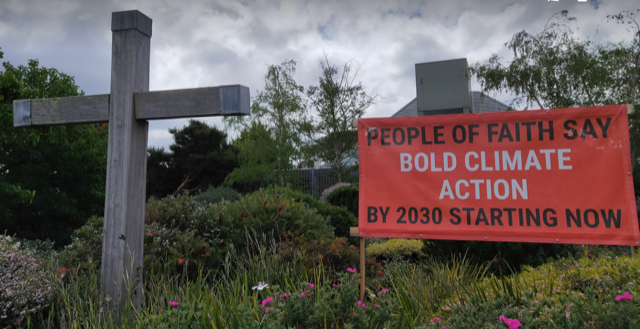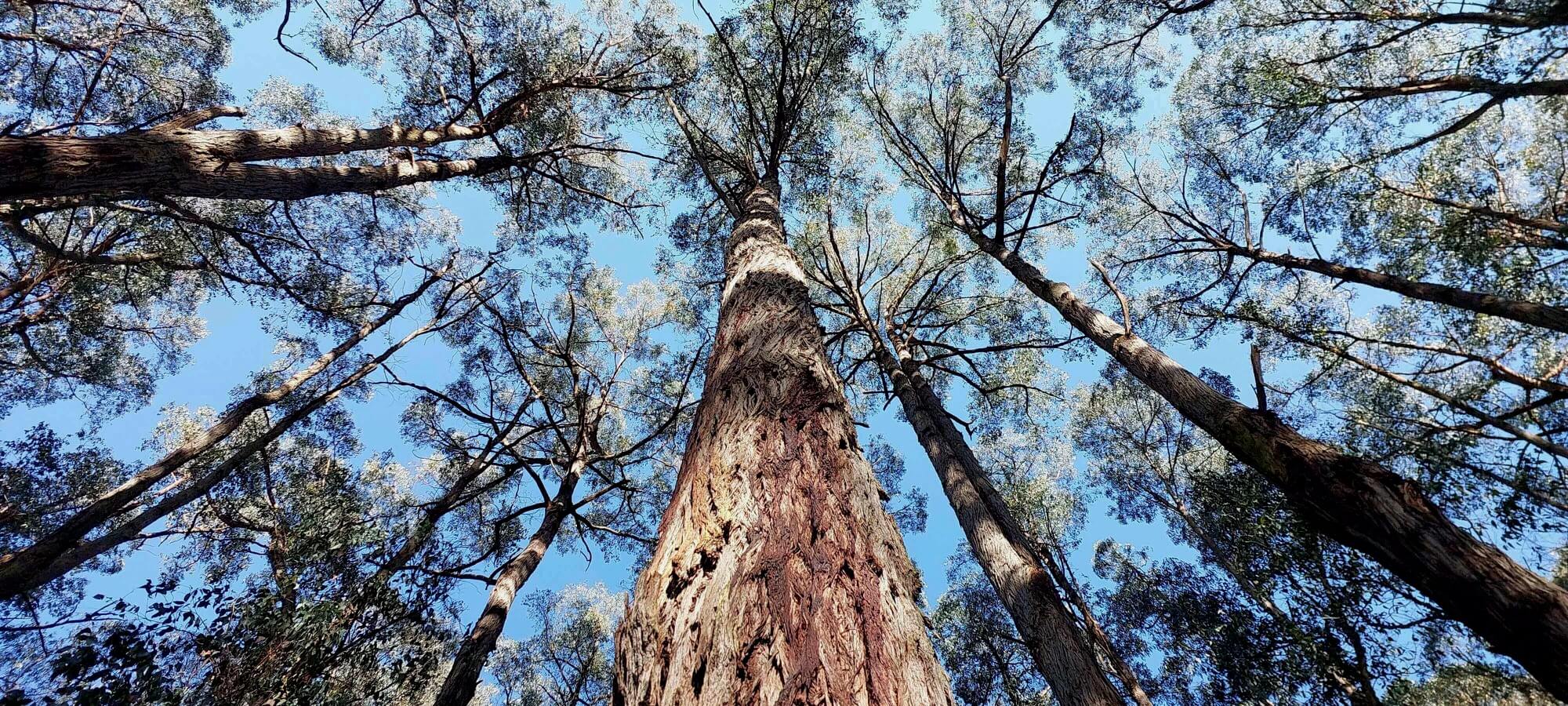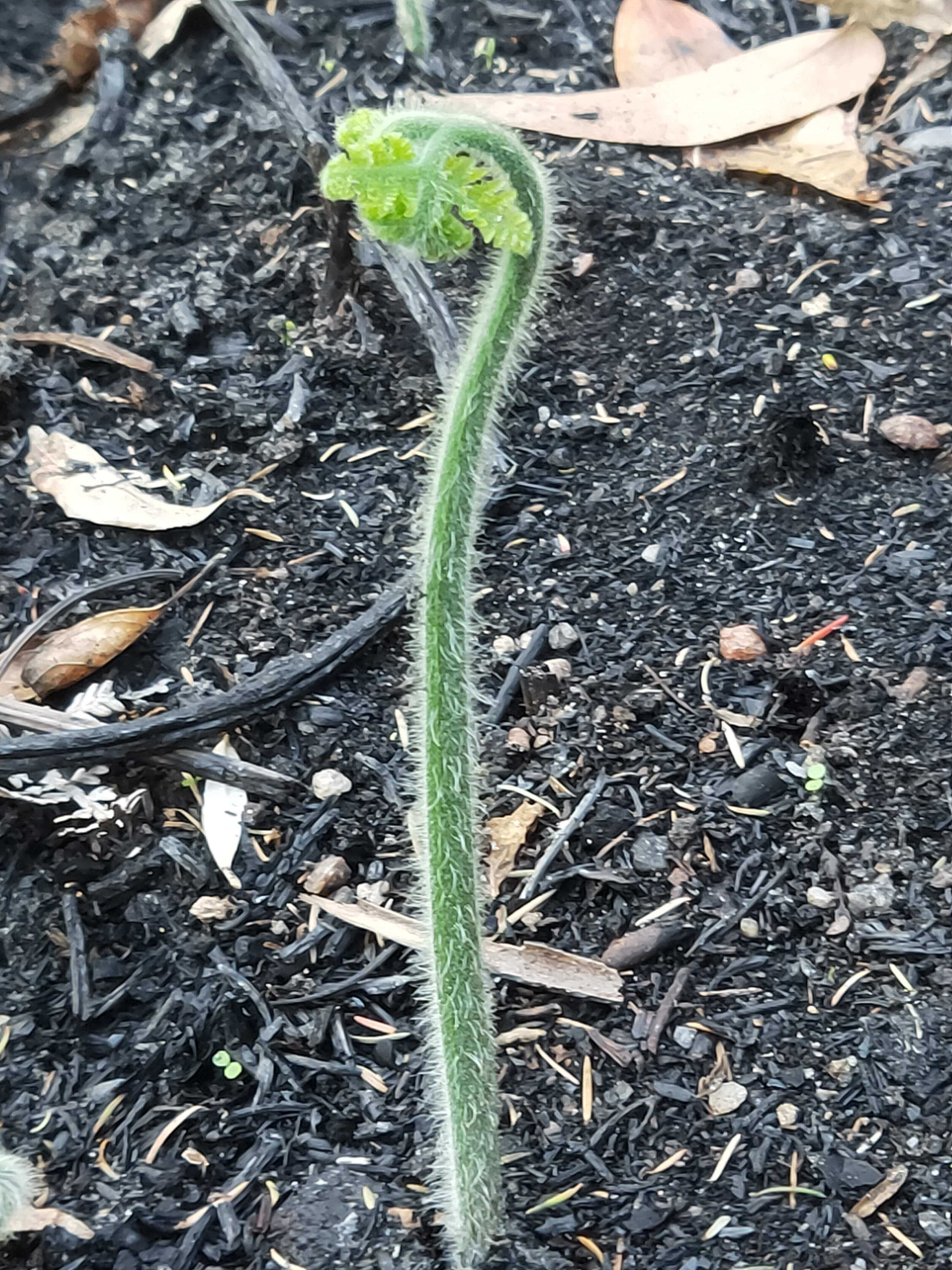The very long decade: A World Environment Day reflection, 2023
Monday, 5 June 2023
| Claire Harvey
A decade ago I was trying to put the finishing touches on a book I was co-authoring with Dr Mick Pope, A Climate of Hope: Church & Mission in a Warming World. It felt urgent at the time, and the impetus lay in the fact that the evangelical church in Australia seemed to be slow in waking up to the ‘greatest moral challenge of our time’, to quote former Prime Minister Kevin Rudd. In fact, as I sought to make comment on the Australian context, keeping up with who was Prime Minister was proving particularly hard: it was 2013 that Kevin Rudd was re-elected as the leader of the Labor Party, being sworn in as the Prime Minister for the second time on 27 June. By this time we were already a quarter of the way through what had been identified by the Climate Commission (yet to become The Climate Council) as the ‘critical decade’ for climate action.
I keep hearing that we’re still in the critical decade, which might just make this the longest decade on official record.
For those in the know, particularly our scientists, the sense of urgency around climate action continues unabated. We’ve come a long way, and I want to recognise the recent progress across all levels of government as well as business. General levels of public awareness continue to grow, to the point that surveys – and dare I say recent election results - attest to a prevailing sentiment of deep concern around environmental issues, particularly climate change. There is certainly now an acute sense that we are positioning ourselves for deep transitions in our economy and lifestyles. However, the reality is that global emissions continue to rise, making the road ahead all the more difficult. On our current trajectory, limiting the increase in average global temperatures to a mere 1.5 degrees is a pipe dream. A growing number of projections put us on track for a wide range of disaster-zone scenarios that will make the height of the COVID-19 pandemic look like a picnic. No wonder some of our scientists can’t sleep at night.
If churches aren’t taking these issues seriously, including naming it as a reality in Sunday sermons, clearly articulating the crucial link with justice-seeking for the world’s poor and making creation care sufficiently central that it actually forms people’s daily lives, then we very rightly could be accused of being a people who just don’t care. Sometimes the irony of it weighs rather heavily on me: have we become a people so preoccupied with going to heaven that we’re willingly – albeit often naively – contributing to the creation of hell here on earth? How might we square this with Jesus’ exhortation that we seek for his Kingdom to come, here on earth, as it is in heaven (Matt 6:10)?

While a decade ago in Australia debates still raged in the public domain about whether human-induced climate change was real, the new debates reflect an acceptance of mainstream science along with a shift in focus to whether crucial efforts should focus predominantly on adaptation or mitigation. Climate impacts are already unfolding across the globe (making news this week are the raging wildfires in Nova Scotia and devastating floods in Italy and Japan). Efforts to protect lives and infrastructure certainly need to be front and centre, but so does ensuring that we work to make climate impacts less severe well into the future. Surely prudence and love demand that we must, somehow, continue to carefully balance both adaptation and mitigation?
In terms of mitigation, the hard truth is that as a civilisation we do now know what needs doing. Momentum in support of change is building but is still not commensurate to the scale of the multifaceted challenges we face. In this regard we all have a part to play. And if each one of us was to play our part, I dare say we’d catalyse faster and deeper mitigation efforts, enabling leaders to pay more attention to the increasingly inevitable and unenviable challenge of helping communities adapt to a hostile climate in the years to come.
Trees are the most wonderful things, as they both mitigate against climate change as valuable carbon sinks AND simultaneously help us adapt to a warmer world through cooling and shading our cities and suburbs (along with helping to reduce flood risk and providing habitat to flora)! Beyond being a champion for trees - which should include avoiding the consumption of virgin paper products, wherever possible - if you’re still remotely confused about what to do then consider this as your updated climate-health checklist for World Environment Day 2023.

1. Power up: electrify
The call of our day is to electrify everything as much as possible. We need to wean ourselves off fossil gas (especially for indoor cooking and water/space heating – and totally when it comes to those outdoor heaters that we need to call out as an environmental nightmare). As the push to electrify everything gains traction, remember those of us who rent, and advocate for policy changes that incentivise landlords along on this journey, too. We can also choose a more ethical electricity retailer and opt for green power as a signal of our concern. Consider options like Co-Power if it’s available in your location (CoPower customers support a cooperative movement that prioritises giving back to communities and accelerating positive change). Incentives still exist to encourage those who are able to install solar. Battery technology continues to improve, too, but in the meantime learn to play the demand management game, using electricity when renewable generation is plentiful, especially in the middle of the day.
2. Cash up: divest
The divestment movement reached Australian shores more than a decade ago: it’s far from new. Yet despite sustained pressure from consumers, our big four banks have loaned in excess of $10bn to the coal industry since the signing of the 2015 Paris agreement, and in doing so are willingly funding future climate disruption. My own banking is with Bank Australia and Great Southern Bank, which are member-owned with strong, clearly articulated ethical commitments. My super is with Future Super, which was set up specifically as Australia’s first fossil fuel free fund. Careful scrutiny of our investment portfolios should be the new norm: it’s our money, after all, and we are morally responsible for how returns are generated.
3. Weigh it up: revisit ‘lifestyle’ choices
There are so many things we could do here, but to keep things simple I want to highlight the four areas of diet, travel, stuff and waste.
Hanging out in ‘ecologically aware’ circles means I increasingly come across those who have chosen a vegetarian or vegan diet, or the more flexible approach of being a ‘climatarian’. Debates still rage within nutritionist circles about what is best for us, long term, but in the global rush to get new climate-friendly products to market we can too easily overlook some much simpler principles, including simply eating less and avoiding foods that are heavily-packaged, highly-processed or from far-away places. Packaging, processing and transport all consume massive amounts of energy as well as creating various waste streams. Beverages are an easy initial target for anyone looking for some quick wins: imagine the positive environmental impact if we all just drank more water from a tap (given that this is, thankfully, largely a safe choice for most of us here in Australia)!
This year I’m participating in the Integral Ecology Fellowship with the Sisters of Mercy. It is a wonderful privilege, yet I’m aware that for all of us at least two of the three immersive experiences involve interstate air travel. This is vexing for me, as someone who tries to be climate aware in my travel choices. Flying is one of the least environmentally friendly activities we can undertake, and as much as it is our new norm, it’s fundamentally a sign of our affluence and privilege. Our relationship with air travel requires mindful attention if we are serious about addressing our environmental impact. At a local government level, while I am happy to advocate for infrastructure that will accelerate the take-up of electric vehicles, my strong preference – every time – is to make active transport (e.g., walking, riding) and public transport the better, easier, cheaper, safer option. EVs are certainly a piece of the climate-response puzzle, but are not the ultimate solution, especially as a switch from ICE to EV does nothing to resolve issues around congestion, parking and the need for ever more roads and freeways. I’m holding out a little while longer, but still hoping and working toward a future lifestyle where it’s feasible to be largely car-free.
In his 2017 publication Curing Affluenza, my favourite Aussie economist Richard Denniss makes the claim that we don’t actually love our stuff enough. I like his point! In our desire to be fashionable and comfortable and to keep up with those Joneses we are too easily predisposed to treating our stuff as being dispensable and disposable in a way our ecosystem simply can’t afford. Collectively we exercise huge power as consumers in modern societies: through our choices we can influence not just the size of our economy but importantly we can profoundly influence its shape. What goods and services are genuinely good for us? What do we want to see more of in our future world? How do we actually want to live? The choice is actually ours.
Councils all over the country are scrambling to cope with increased land-fill levies and the collapse of overseas markets for recyclables, as well as the unfortunate ‘pausing’ of our national soft plastics recycling scheme. We need to embrace this crisis as the opportunity that it is, and pour even more resources into a rapid pivot toward a circular economy where we reframe waste as valued resource. Industry and government have a huge role to play, but again there is a power in our collective efforts as citizens and households. Sorting resources (aka ‘rubbish’) in order to minimise residual waste should be increasingly normal, as should be composting on-site or utilising (or advocating for) FOGO.
4. Speak up: get vocal
Evangelical Climate Scientist Katharine Hayhoe is one of many advocates for the power of simply speaking up about climate change. We need to break the silence. We need to discuss the facts and forecasts, but we also need to name our fears and our sense of foreboding. Being silent is not a part of the solution. We use our voice when we vote. We use our voice when write to corporations about what we like (or don’t like) about their products and services. We use our voice when we share crucial information on social media, when we request a meeting with our elected leaders and when we continue to call for urgent change and reform. Some of us also use our voices when we take to the streets, be it a School Climate Strike or a Stop Adani protest. We use our voice every time we weaken the social license that certain industries have been trading in for decades too long, in terms of their willingness to engage in climate-wrecking behaviours that we know will cause harm to our natural world, the most vulnerable and future generations. Every time we use our voice, we also help to make our key activists feel more seen and supported and less alone. The rates of burnout among conservationists are alarming: they need us to have their back and to join with them in speaking sense to a world gone slightly mad.
5. Wake up: quit denial
We hear quite a bit these days about being ‘woke’. Some are fiercely for this shift toward ‘waking up’, while others profoundly sceptical of where cancel culture might actually take us as a species. The ongoing culture wars certainly involve some landmines we’d do well to avoid, but even Isaiah (e.g., 60:11) writes of the hour coming to wake from our slumber: the sense of being unwilling or unable to properly see and understand is nothing new. Every major scientific academy in the world now agrees on climate change, or anthropogenic global warming. Emerging generations of young people have grown up with the reality of climate change as their normal. This is their world, and this emerging climate reality is not going to go away, no matter how hard one might try to shut one’s eyes or block one’s ears. Along the lines of Naomi Klein’s 2015 book, climate change really does change everything. For me, along with co-authoring a book and investing a whole lot of heart, soul and resource into a (failed) attempt at establishing a cohousing community, more recently my commitment to living in alignment with the truth has demanded another career pivot, of sorts. After seven years working as a school careers advisor, I had to face a painful truth of my own, that genuinely seeking optimal outcomes for students (along the lines of prevailing parental wishes for them to have a secure, successful and happy future) means that climate action ultimately becomes more pressing than a siloed focus on correct subject selection and ATAR maximisation. While individual career paths remain important, the emerging reality we must all continue to face is that nobody really gets to thrive without a habitable planet. A growing number of grandparents feel this keenly, when they consider their personal legacy, and the Australian Parents For Climate Action group grows by the week (currently 10,000+ followers on Facebook).
6. Connect up: crucial companions
If you’ve read this far, I commend you, and I thank you. This is not a journey for the faint-hearted. It is one of pain, lament and shared suffering, including anticipatory grief, and managing a sense of betrayal (perhaps by governments, yes by some corporations, and on the whole by our leaders who inherently carry a duty of care for us). It is also a journey of managing a constant emotional load that includes trying to hold unhealthy levels of cynicism and despair at bay. Though we may not speak of it often, many of us carry climate fear that can escalate into deep terror if not kept in check. Feeling our feelings, and naming our emotions, is a healthy psychological response to what we now face. We are profoundly vulnerable in our interconnectedness and interdependence. We need one another desperately. We need communities of truth-telling that hold space for us as we navigate new territory as a species. We need fresh spiritual disciplines, especially around lament and holding on to hope. I dare say we also need more artists and poets (like Justin Simpson’s new collection of poems, aptly titled Journey Companions).
7. Look up: keep breathing
For the love of God and neighbour, we do need to act but we also need to keep looking up. Like the astronomers and cosmologists who look out into our vast, expanding universe to better understand our fragile and unique place in it. Like the Psalmists who looked to the hills for help (Psalm 121), and the prophets who looked to the heavens and were reminded of God’s power and mighty strength (Isaiah 40). We need to find new ways to be still, and humble, before God. We need to find effective ways to cast our anxieties onto him, knowing that he indeed cares for all of us (1 Pet 5:7).
And every so often we need to find our way into a forest, to bathe in the beauty and serenity of a rich canopy of trees. To lift our eyes, and to breathe fresh oxygen deep into our lungs. To appreciate creation and our unique and wonderful place here on earth. And to learn to better value the natural world, without which we do not survive…
Claire Harvey is mum to Sarah and Micah, and a part of The Village Church in Mount Eliza. She serves on Frankston City Council, is co-Chair of SECCCA, works with ISCAST (publisher of Tony Rinaudo’s book The Forest Underground), runs ECHO Coaching, is board member for Ethos and is Uniting Church Vic/Tas rep to CoPower.
Image credits:
Demonstration, London. By Kevin Snyman. Public domain at Pixibay.
Forest therapy session in Silvan, Vic., with Matt Glover from Forest Therapy Victoria. Photo: Claire Harvey.
Climate change sign at The Village Church, Mt Eliza, Vic. Photo: Claire Harvey.
Shoots of new life at Wilson's Promentory National Park (Vic.), after bush fires. Taken April 2022. Photo: Claire Harvey.
